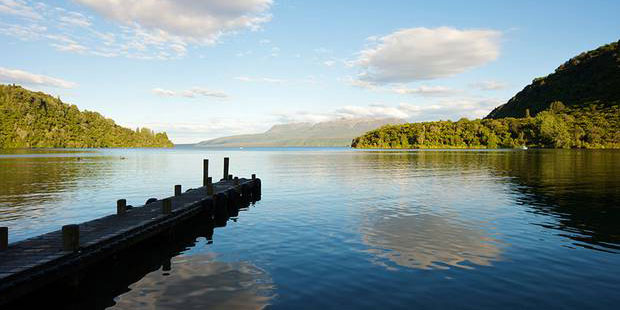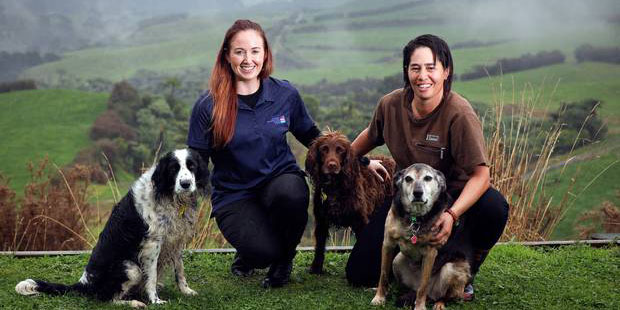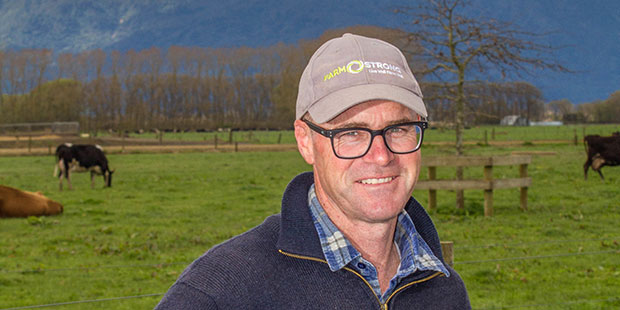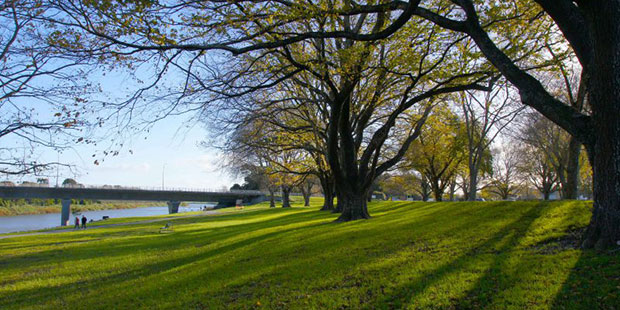City slickers turned farmers
Rookies they might be, but two female dairy farmers find success through environmental care.


Ditching high-flying corporate jobs to go dairy farming is an unlikely career change but that is exactly the path Janelle Nee and her partner Melonie McEntyre set out on four years ago.
Turning their backs on their high-pressure jobs in Auckland, they bravely headed into the unknown to take over the running of a dairy farm in Bay of Plenty.
Today the pair is turning heads in the sector, not only because they have quickly turned their farm into a successful business while putting in place practices creating a strong and sustainable enterprise – and restoring greater numbers of bird and aquatic life on the property.
The couple are working to an environmental plan aimed at managing carbon emissions and protecting a stream (and a small wetland) running through the farm, action Nee says is consistent with their philosophy “to do the right thing.” So far, they have spent around $170,000.
“We are kind of city slickers turned farmers,” says Nee. “I was running a private educational college in Auckland and Melonie was a client services manager but we had been wanting to get out of the rat race for some time.”
The perfect opportunity arose when they decided to take over the lease on a 96ha farm at Ohauiti, near Tauranga, owned by Nee’s parents Graeme and Jeanette (who had been running it since the mid-1950s).

Mel McEntyre (left) and Janelle Nee quit the big city life for a Tauranga dairy farm. Photo / Andrew Warner
Mel McEntyre (left) and Janelle Nee quit the big city life for a Tauranga dairy farm. Photo / Andrew Warner
Although both Nee and McEntyre had rural upbringings, neither knew the first thing about farming when they started: “If someone had said to me, ‘oh, you’re gonna love your cows’, I would have been like ‘oh, whatever’,” McEntyre told the Bay of Plenty Times last year. “But I do love my girls, you get to know their personalities.”
The couple set up a company, Kaitiaki Whenua Farming Ltd (kaitiaki meaning guardian of the land) and while McEntyre manages the day-to-day operation, Nee looks after the accounts and helps out on weekends, doing this around her new day job as business manager for Tauranga Veterinary Services.
“We make a real effort to show people there are farmers out there that care about their animals and the environment.
“Dairy farmers get a lot of flak, but we are well educated (in environmental best practice) and receive a lot of support from Fonterra,” Nee says. “Our farm is also quite close to an urban area – we’ve got about 35 neighbours on one side – and people are watching us all the time. This also helps shape our philosophy about doing things the right way.”
Much of the environmental work they have carried out centres on protecting a stream that runs 6km through their property; the aim being to prevent as much run-off as possible, not only from entering the waterway itself but the larger Waimapu River it feeds into. The stream has also been fenced to keep stock out and an extensive weed eradication exercise undertaken along its edges.
Around 20 to 30ha of the property is in regenerating natives such as rimu and totara, many of which were being smothered by weeds like wandering jew, wattle and woolly nightshade.
“We spent roughly $100,000 to have a weed management team remove them,” says Nee. “We didn’t plant, we just helped nature along by removing the weeds and letting the natives thrive, but it is an ongoing task.”
Nee was closely involved in this programme on behalf of her parents, although it was carried out before she and McEntyre took on the lease.
The couple are also embarking on a $70,000 project to move the 1km farm raceway to re-direct the channelling of rain water or run-off water: “Our farm has a big slope in it so we are moving the raceway to run through the upper centre of the property away from the stream,” says Nee.
She says mature Banded Kokopu, a fish found only in New Zealand, have been seen in the stream: “They choose to inhabit only very clean waterways which reflects on the water quality so we must be doing something right.”
Although the farm is small - it runs a herd of 135 cows on 57ha of pasture - the pair like it that way. They have a low stock rate per hectare and say they manage that low input system to ensure they have happy, well-producing cows.
Nee says her mother Jeanette (76) takes an active part in the environmental work: “We have a small wetland of about 30sqm and Mum has helped fence it off, put in plants such as flaxes and built rock ways to help with the filtration of run-off.
“A lot of our farm is in native bush and mum reckons bird numbers have been increasing since we started particularly Harrier hawks and Kingfisher.”
She says both her parents are completely on board and her dad (82) still gets out on the tractor to help with various tasks.
Her mum also helps with another environmental measure – controlling pests like possums: “She has a passion for hunting and she goes out just about every day to shoot them.” They also trap them and say they have culled hundreds.
Jeanette is an interesting person in her own right. Born and raised in Vancouver Island in Canada, she grew up hunting with her father at 10 and has never put her gun down since. The family moved to New Zealand in 1962 and she has continued to hunt ever since. She is also an award-winning wildlife photographer.





